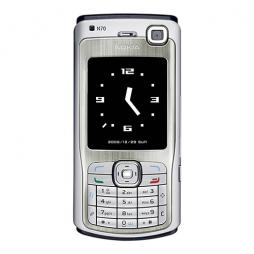The Mobile Minute is here to bring you coverage on the rise of smartphone sales around the world, a crop insurance plan in Kenya that uses mobiles to process claims and distribute money, the effect of the 2010 U.S. elections on PBS' mobile web and app usage rates, a pilot in Zambia that uses SMS to rapidly transmit HIV test results between rural clinics and hospitals, and mGive's new mobile donation options.
- According to Wired, "Over 80 million of the over 400 million handsets sold in the third quarter were smartphones," and that those numbers indicate that smartphone sales have risen 98% worldwide compared to last year's numbers. The article looks at how lower handset costs and greater availability of 3G coverage led to increased sales.
- A pilot project in Kenya uses mobile phones to process and fund insurance claims; called Kalimo Salama, the program encourages higher yielding farming practices by offering crop insurance to farmers who purchase fertilizer and high-yield seeds. AudienceScapes reports: "To purchase the insurance, farmers pay a 5 percent premium on top of the price of seeds, fertilizer and other farm inputs. A group of 40 registered and trained rural retailers, known as agro-dealers, now sell the insurance. They each have a camera phone to scan a special bar code on the product at the time of purchase. This registers the insurance policy with UAP Insurance through Safaricom's mobile data network. Immediately afterward, an SMS is sent to the farmer’s mobile phone confirming the insurance policy." Payments are distributed via mPesa directly to policy holders' phones.
- On the day of the 2010 U.S. elections this November, downloads of the PBS NewsHour mobile app tripled. An article on MediaShift details the show's multi-platform approach which included live-steaming results online, targeting their iPhone app users to remind them of election coverage, and creating a map with live election data for Internet browsers.
- In Zambia, a pilot project is using SMS to transmit HIV test results between rural health clinics and hospitals. The new program allows results to be received within five days, a vast improvement over the ten weeks it can take via post. The pilot, which focuses on at-risk mothers and newborn children, is being tested in ten clinics and will be evaluated after six months.
- The mGive Foundation announced it has raised the limit of mobile donations as part of a pilot project to test donors' needs for mobile giving. Previously donors could donated either $5 or $10 via SMS campaigns, but as part of the pilot select organizations can now receive SMS donations of up to $25.
[Mobile Minute Disclaimer: The Mobile Minute is a quick round-up of interesting stories that have come across our RSS and Twitter feeds to keep you informed of the rapid pace of innovation. Read them and enjoy them, but know that we have not deeply investigated these news items. For more in-depth information about the ever-growing field of mobile tech for social change, check out our blog posts, white papers and research, how-tos, and case studies.]
Image courtesy Flickr user QiFei


Post new comment